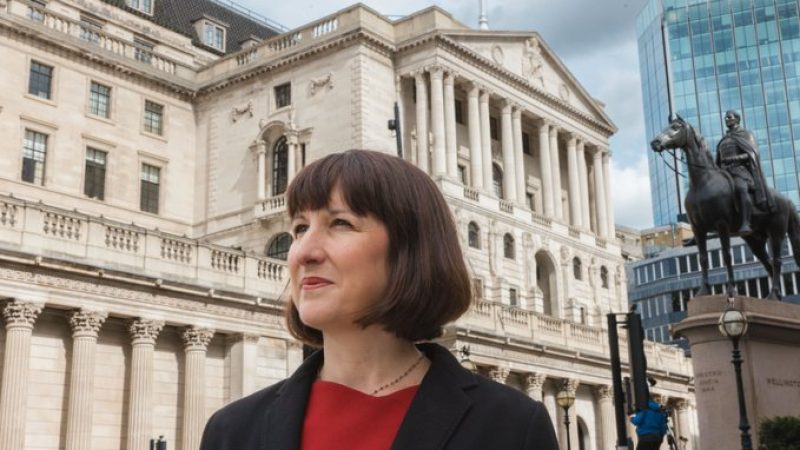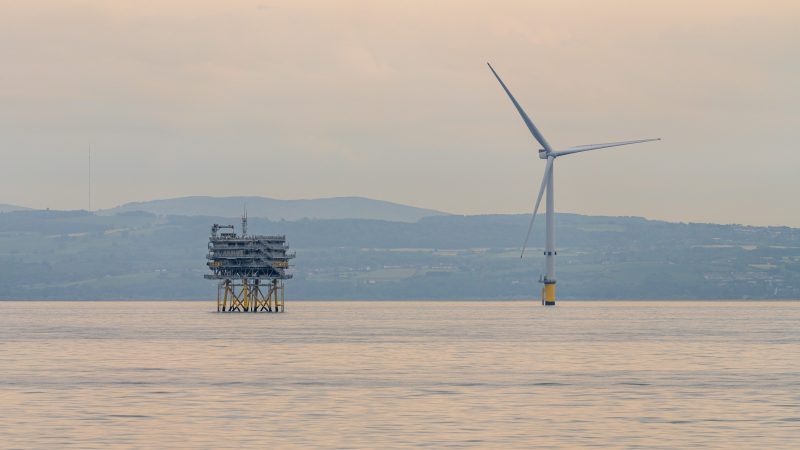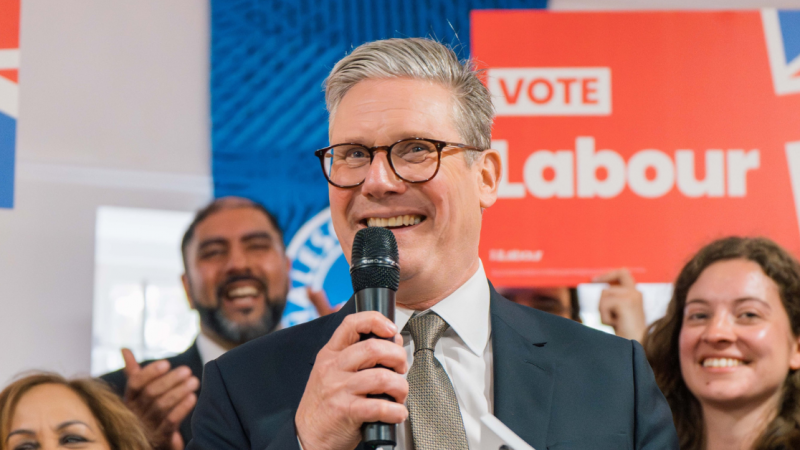“We continue to call for a ceasefire, for the release of all hostages, and for the release of thousands of Palestinians held in Israeli jails, often on trumped-up charges that render them political prisoners.”
Tony Slaven, UNISON Scotland
Impassioned debate on Palestine sees delegates pass a substantive motion at this year’s UNISON conference.
The third day of UNISON’s national delegate conference, chaired by UNISON president Libby Nolan, saw delegates pass a composite motion in solidarity with Palestine – but not before several impassioned speeches were heard.
The debate came shortly after Palestinian ambassador to the UK Dr Hussam Zomlot’s speech to the union.
Introducing the motion on behalf of UNISON Scotland, Tony Slaven said: “After the deaths of nearly 40,000 people, a ceasefire is needed urgently.
“We continue to call for a ceasefire, for the release of all hostages, and for the release of thousands of Palestinians held in Israeli jails, often on trumped-up charges that render them political prisoners.”
He urged conference delegates to vote for the motion, which calls on the UK government to recognise Palestine as a state, to refuse to continue to supply arms to Israel and to support “a peace process that will outlive the politicians of today.”
Speaking in support of the motion, the chair of the NEC’s international committee Liz Wheatley said: “None of us will ever forget the sights and sounds coming out of Rafah. The sights of burning tents in a refugee camp where hundreds of thousands of people had been forced to flee as their homes across Gaza were destroyed.
“They were not displaced, they were driven there by a brutal bombing campaign that has seen over 37,000 killed, 85,000 injured and more than a million facing famine.”
Ms Wheatley’s speech focused on the second demand of the motion – to call on the UK government to suspend arms sales to Israel.
“Sunak and the Tories don’t care about that poor man holding up the headless body of his child, Ahmad Al-Najar; they don’t care about people burned to death in tents. They don’t care there are no hospitals to treat them, that people are starving because aid isn’t allowed in, because food and clean water is scarce. All they care about are their friends in the arms industry, who make a profit out of death.
“As a public-sector worker, I know that every penny, every pound that the government spends on death and destruction is a penny and a pound that could be spent on our hospitals, schools and our public services.”
Yvonne Green, speaking in support of the motion on behalf of Croydon local government branch, drew attention to the sixth part of the motion, affirming UNISON’s support for the boycott, divestment and sanctions (BDS) movement, which she described as “a peaceful method to pressure Israel to uphold international law”.
In a similar vein, Glen Williams from the North West region urged local government workers to take action on pension funds. “Local government pension funds invest £4.5billion in companies complicit in Israel’s oppression of Palestinians.”
Work on pensions is ongoing, having begun in 2015.
Delegates also spoke of the atrocities of 7 October, while the composite motion itself stated that “the horrific violations of international law committed by the Israeli government, Hamas and other armed groups in Gaza, Israel and the West Bank must be investigated and prosecuted by the International Criminal Court and the International Court of Justice”.
The motion was passed by a majority vote.
The motion calls on UNISON’s national executive council to:
1) Campaign for an immediate and permanent ceasefire; an end to the siege of Gaza including the full restoration of water, electricity and communications; immediate access to comprehensive humanitarian aid including food, water and medicines; and the safe release of both Israeli hostages, and Palestinians wrongfully held in Israeli prisons, including under administrative detention.
2) Call on the UK government to take measures to uphold international law, including suspending the arms trade with Israel, banning trade with the illegal settlements and supporting the prosecution of violations of international law by the International Criminal Court and International Court of Justice.
3) Call on the UK government to recognise Palestine as a sovereign, independent state, put pressure on the UN to recognise Palestine as a full member state and implement credible measures and call for renewed talks to facilitate an internationally supported, just political solution, in line with successive UN resolutions, which provides for a viable, contiguous Palestinian state, alongside Israel;
4) Work with Labour Link to secure a commitment from the next Labour government to recognise Palestine as an independent state.
5) Encourage branches to support the work of Medical Aid for Palestinians and the Red Cross to support the right to health, and make a further donation to Medical Aid for Palestinians.
6) Continue to oppose the UK government’s Economic Activities of Public Bodies (Overseas Matters) Bill and other attempts to restrict BDS, and continue to use targeted BDS to apply pressure to the Israeli government to end the occupation, respect the rights of Palestinians and bring about peace, including promoting UNISON’s campaign to divest from Local Government Pension Schemes to branches and regions.
7) Continue providing practical solidarity in support of the rights to decent work and quality public services, including through work with trade unions and Palestinian and Israeli human rights and workers organisations;
8) Encourage branches and members organising around Palestine in their workplaces and encourage them to mobilise for national and local peaceful protests.
9) Promote educational initiatives within UNISON branches to raise awareness about the history and complexities of the Palestine-Israel conflict.
10) Continue to support the work of the Palestine Solidarity Campaign and encourage regions and branches to affiliate.
- This article ws originally published on the UNISON website on 21 June 2024.
“We are not going anywhere. But this should be the last time we allow a mass murder of our people. For that, we must not just recover. We must secure our freedom and with it, a sustainable peace.”
Ambassador Husam Zomlot
Palestinian ambassador Dr Husam Zomlot delivers a message of defiance and hope at UNISON conference
The highlight of this year’s UNISON national delegate conference was a speech from Palestinian ambassador to the United Kingdom Dr Husam Zomlot (pictured), who was welcomed with a standing ovation.
Thanking the union for its warmth, he began with an acknowledgement of UNISON general secretary Christina McAnea’s recent trip to the West Bank. “I know Christina got a taste of what it means to live under Israel’s military occupation.
“You may think it’s the deadly military operations in Gaza that are the worst part,” he continued. “But since October, Israel has killed over 500 people, including over 100 children, in the occupied West Bank. Of course these killings, along with house demolitions, are part of the rampant settler terrorism that has displaced more than 1,000 people from their homes and villages in the last eight months.”
Dr Zomlot described life for Palestinians in the West Bank as “the constant denial of one’s humanity and dignity. The constant fear of arbitrary killings and detention, of roadblocks and checkpoints and never knowing if you can get to work or if your children can get to school. Never being able to plan a day, month or year because the Israeli military pays no attention to your rights of life. Constant daily humiliation is what military occupation is really about.
“But we, the Palestinian people, are hard to break.”
He went on to detail the history of trade union solidarity with Palestine. “Forty-four years ago, it was trade unions in Dundee that forged the first ever twinning agreement between a Palestinian city and a UK one. Dundee was twinned with Nablus. Union to union, solidarity has only been strengthened over these decades and we share values of justice for all.
“UNISON was one of the first unions to call for an immediate and permanent ceasefire in Gaza and long demanded that international law be applied to Palestine. That is not a gift or favour, but a right. Our rights are our rights, and we have been denied these rights for 76 years.”
Dr Zomlot praised UNISON’s work over the years to support Palestinian rights. “I know how dedicated you were in opposing the government’s boycott ban, a very clear attempt to interfere with British democracy and to shield Israeli settlements from accountability.
“UNISON over the years has worked closely with Palestinian NGOs, trade unions and human rights organisations. UNISON works for Medical Aid for Palestinians in the UK, with the Red Cross, with Defense for Children, to boost emergency appeals.
“UNISON works with the global and European trade union movement to build support for Palestine. Your efforts to ensure accountability, to spread solidarity and stand with justice and the Palestinian people are working. Your efforts are working.”
Dr Zomlot then went on to describe the difference between working people in the UK and successive governments that have refused to recognise Palestine as a state.
“We have suffered ethnic cleansing and we are now suffering genocide. Yet we have had successive British governments say they will recognise a Palestinian state when the time is right, when it will aid the peace process.
“What peace process? Should we wait for the Israeli military to come to its own senses? Should we wait for colonial Israel to settle in all the territory? Shall we wait for apartheid Israel to force everyone out of Gaza and the West Bank?
“This is a question of international law, resolutions and rights. It is a question of humanity.
“Why should we live a minute longer under Israel’s illegal, immoral and violent occupation? We call on the British government to recognise the state of Palestine immediately and join the 146 countries in the world that have done so.”
The UK’s responsibility to Palestinians
Dr Zomlot turned his focus to Britain’s role in establishing and perpetuating the occupation of Palestine. Referring to the Balfour declaration, a public statement issued in 1917 by the British government that declared Palestine should become ‘a national home for Jewish people’, Dr Zumlot said, “Britain, in 1917, directly contributed to our agony. Britain promised our land without any consultation with the native population that had lived there for millenia.”
He called for the UK to recognise Palestine as a state and expressed his dismay at the UK’s abstention on a 2012 UN general assembly vote that saw the majority of the world vote recognise a Palestinian state.
“This isn’t about Palestinian people. This is about the United Kingdom’s historical role and moral, legal and political responsibility. But whether the United Kingdom will recognise the state of Palestine or not, Palestine will be free. Palestine will be independent. We will be sovereign. So it’s better for the UK to do the right thing, not to drag its feet, and recognise our right to return and equality.”
Gaza: famine, destruction and mass killings
Dr Zomlot gave a grim overview of the current situation in Gaza, where over 50% of all buildings have been destroyed along with 70% of homes, 80% of schools and all universities.
“Just four of Gaza’s 36 hospitals are only partially operating. Factories, industries, ministries, libraries, mosques, churches, bakeries and Gaza’s central archive containing over 150 years of historical documents all died. The destruction has been total and the killings have been unconscionable: over 37,000 dead and the majority are women and children, with thousands more buried under rubble and thousands more projected to die from famine and disease.”
“Are we no longer shocked that Israel has imposed a famine on 2.3 million people? Have we normalised industrial scale killings? Have we normalised mass destruction?”
Hope
However, he also spoke of the hope that Palestinians have. “There is hope in the incredible resilience and heroism of our people in Gaza. And the people like the Palestinian trainee lawyer, Noor Nassar, who has started a mobile school to provide some education to the 625,000 school age children who have received no education at all this year.”
“There is hope in our people returning to pray for Eid at the historic Omari mosque in Gaza City.
“There is hope in our courageous and brave doctors and nurses who, despite the threat of being targeted, killed, kidnapped; despite the threat of detention and torture, and despite the lack of electricity, fuel and medicine, continue to perform medical miracles. Over 300 doctors and nurses have been abducted, and at least two doctors have been killed in detention.”
Dr Zomlot said he was not surprised that the Israeli military had targeted the medical and education sectors. “One is necessary for life, and one is necessary for a better future. When you target health and education, you target a people’s means of survival. The Palestinian people are an educated people. Education has been our foremost means of resistance. Palestinians have some of the highest literacy rates and highest per capita PhD rates in the world.”
Dr Zomlot defiantly said, “We are not going anywhere. We have recovered before and we will recover again. But this time must be the last time that we see our children being slain in mass killings; the last time to see our mothers murdered, our homes destroyed, our schools bombed. This should be the last time we allow a mass murder of our people. For that, we must not just recover. We must secure our freedom and with it, a sustainable peace.
“I see hope in the International Court of Justice, which has officially put Israel on trial for genocide following South Africa’s case against Israel. I see hope in the International Criminal Court, who have levelled charges of war crimes against senior Israeli leaders for the first time in history. We’re waiting for the arrest warrants to be issued by the end of this week.
“We see hope in the UN secretary general, Antonio Guterres, putting Israel on a blacklist of countries for its harsh treatment of children.
“The UN’s Independent International Commission of Inquiry on the Occupied Palestinian Territory said Israel is one of the most criminal armies in the world.”
He also said he found hope in the mass demonstrations in solidarity with Palestine, particularly in the student movement in the US and UK. “They call them students but I think we should call them teachers: teachers of humanity.
“History tells us that if you have the student movement and the labour movement, then you’re in the right direction; it’s those two movements that always press for change and always succeed.
“I truly believe that the eyes of the world will not be diverted any longer. Once you have seen what is happening, you cannot unsee this. You will not forget. We will not forget.”
“There has to be equality for every Palestinian wherever they live; and non-Palestinian for that matter. I assure you, the Palestinian people are ready and able.”
‘Justice for the Palestinian people is justice for all’
Dr Zomlot closed his speech in honour of the memories of the dead children who have featured in shocking footage witnessed by millions around the world: “Sidra, the girl whose body was left dangling from a wall. She was my wife’s cousin.
“Hind Rajab, the six-year-old who was left alone calling for help. Ahmed Al-Najar, the 18-month old beheaded baby.
“We must not waver in our efforts to ensure a future for those they left behind. This is how we honour the slain children of Gaza and innocent people all over the world.
“Justice for the Palestinian people is justice for all. Thank you for your solidarity.”
Dr Zomlot’s speech was met with a standing ovation from conference delegates, who joined for a group photo with ‘ceasefire now’ placards’.
- This article originally appeared on the UNISON website on 21 June 2024





